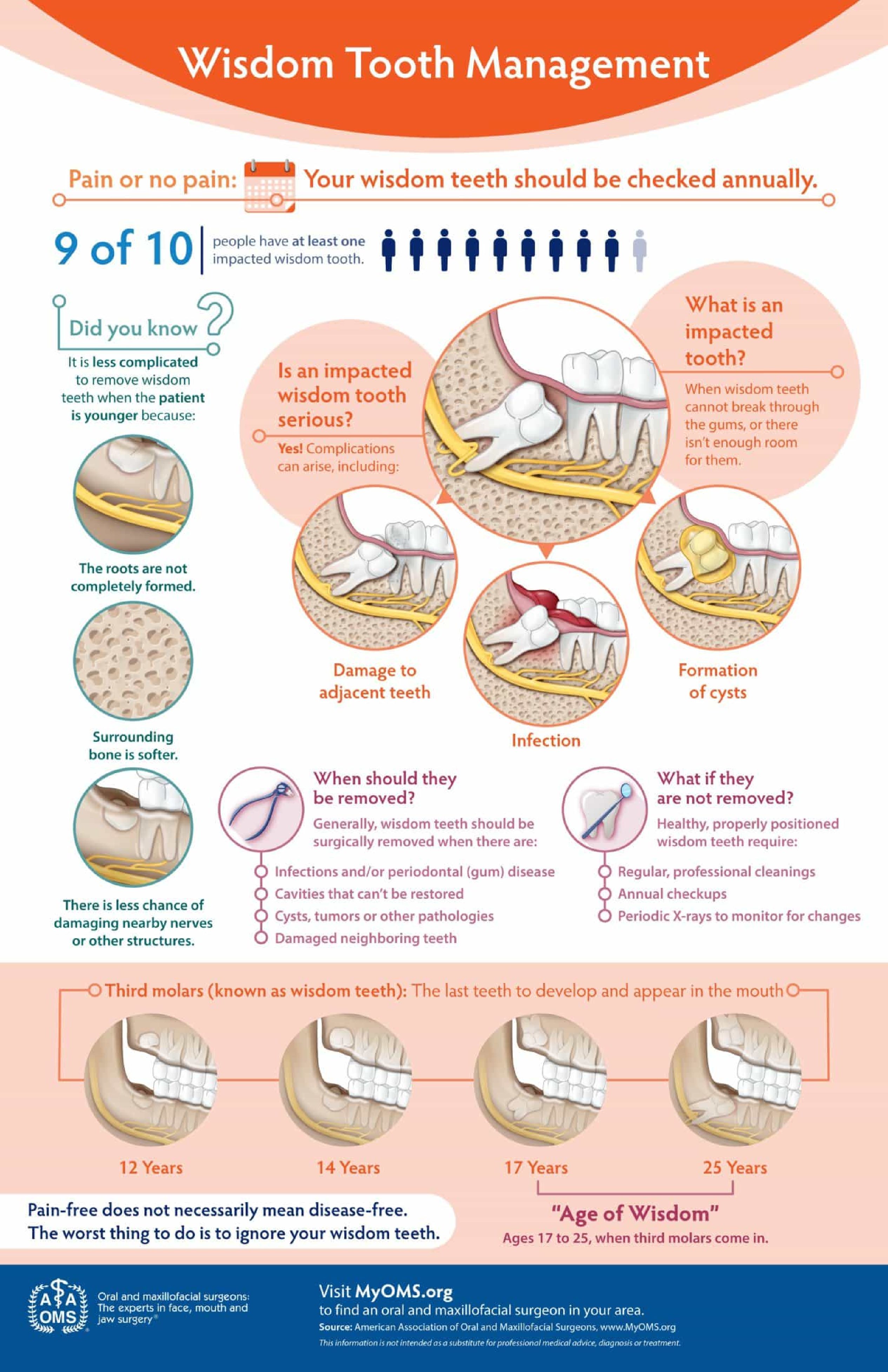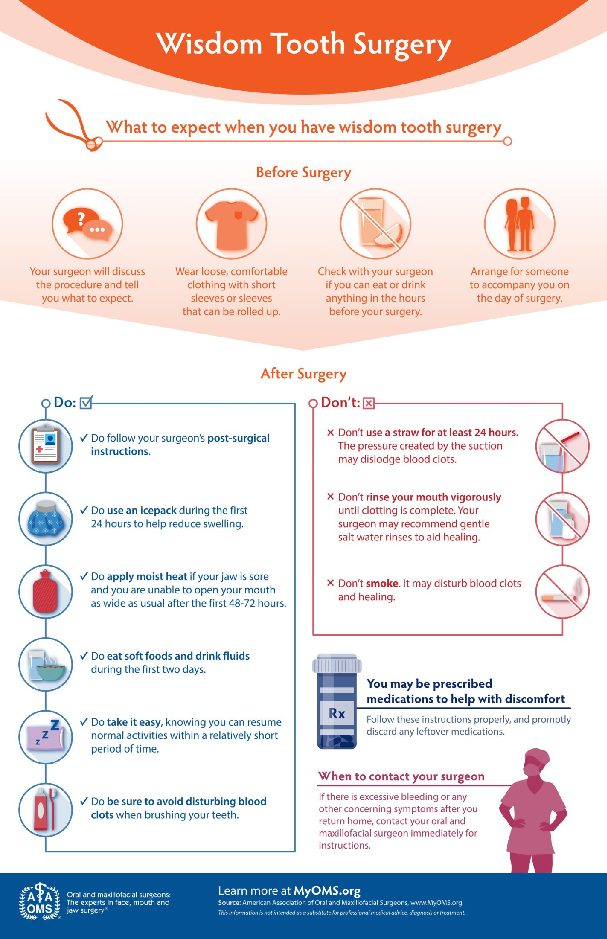Once you feel that tell-tale twinge in the back of your mouth, the dread begins to set in. You knew it would happen one day, but you’d hoped that you might be one of the lucky few without issues. Your mind flashes from thoughts of cost to anesthesia to the length of recovery and back again.
As the panic grows, so does the pain. You can’t put it off anymore. It’s time to make a Wisdom Teeth Consultation with an oral surgeon.
The truth is, a consultation is not as scary (or as expensive) as you think it might be. If you’re looking to ease your mind and get some of your initial questions answered before wisdom teeth removal, this article can help you prepare. Read on to learn about what you can expect during your initial conversation with your oral surgeon.
Oral Consultation Meaning
As much of a relief as it might be to show up at the oral surgeon’s office and get your wisdom teeth removed in one quick visit, the process always starts with a consultation. This is an initial visit with the surgeon who will be completing your surgery, which can help you both prepare for a quick and easy procedure.
If you have concerns about cost at this point, you shouldn’t be. An oral surgeon consultation is often included in the cost of the procedure, and will most likely not be billed separately.
What will happen during the consultation, and what will you talk about? That depends on your oral surgeon and the complexity of your particular situation and can vary depending on your age and the severity of your case.
For the most part, all consultations began with a quick exam, during which the surgeon will evaluate your oral health situation. This will not be much different than your typical dental examination, and will likely be less involved, as no cleaning is involved.
The surgeon may ask you questions about your oral health history. Be prepared to discuss prior dental procedures or oral surgeries that you may have had in the past.
If possible, have your regular dentist forward any recent x-rays to your oral surgeon’s office. The surgeon may or may not require you to have new x-rays of your teeth or your head during the initial consultation. The x-ray is a quick and painless procedure that takes seconds or minutes.
If you’re not sure what questions you should be asking, it’s okay! Your surgeon is a professional who performs wisdom tooth extractions every single day, and they will be able to lead the conversation. If you have any particular concerns, however, the consultation is a great time to ask them so there will be no surprises on the day of your surgery.
Why Do Oral Surgeons Put You to Sleep?
One of the most common anxieties involves the use of anesthesia during wisdom tooth extraction surgery. In many cases, surgeons will use some kind of anesthesia to help reduce pain and anxiety. Even so, when it comes to the use of anesthetics, you have more options than you might think.
Two types of anesthesia can be used during the average wisdom tooth removal procedure. The first is general anesthetic, which we think of as “being put to sleep.” If you are anxious about pain or drills, this might be the more comforting option, as you will not see, hear, or feel any part of the surgery.
General anesthesia does come with some risks, as it is the same anesthesia used in hospitals during more invasive surgical procedures. Your surgeon will inform you of all of these risks before you have your wisdom teeth removed. You will most likely be asked to sign waivers and will have all of the information that you need in writing.
If you would prefer to avoid sleeping through the surgery, you may also have the option of local anesthesia. In this case, you will be awake during the procedure. The surgeon will instead use nitrous oxide, or “laughing gas,” to sedate and relax you. You will be numb, and you are unlikely to feel anything other than pressure during the operation itself.
Typically, a procedure done with general anesthesia involves more time in the recovery room immediately after surgery, as you will need to “wake up.” It may also initially require more medical monitoring.
In contrast, the effects of nitrous oxide wear off quickly and can be less jarring for the patient. To determine which type of sedation you qualify for, simply ask your oral surgeon during your consultation.
How Much Will My Wisdom Teeth Removal Cost?
The cost of your wisdom tooth removal can also be a source of anxiety. Luckily, many dental insurance plans will cover some or all of the cost of the surgery. Consult with your surgeon to discuss what insurance plans they accept, and any payment plans they offer.
Your choice of anesthesia may also impact the cost of the surgery. Because general anesthesia involves more medical monitoring, it may be more expensive than a procedure done with local anesthesia. It’s important to choose the option that makes you the most comfortable.
The number of wisdom teeth that are being removed will also be a factor. While many people prefer to have all four removed at once to avoid the necessity of future surgery, you may only have one or two teeth that need attention. Impacted wisdom teeth may be more expensive to remove, as more work is involved during the procedure itself.
When considering cost, don’t forget to factor in the cost of any drugs or medications you may be prescribed for pain management after the surgery. Insurance will also often cover the cost of these medications. You may also be prescribed antibiotics to prevent complications from infection or dry socket.
Schedule Your Wisdom Teeth Consultation Today
If you are experiencing pain, a wisdom teeth consultation with your oral surgeon is your first step toward relief. It is a great opportunity to get your questions answered by a professional and evaluate your needs.
If you are in the Suwanee, GA area, reach out today to request your consultation. Our oral surgeons can’t wait to meet you and put you at ease!



